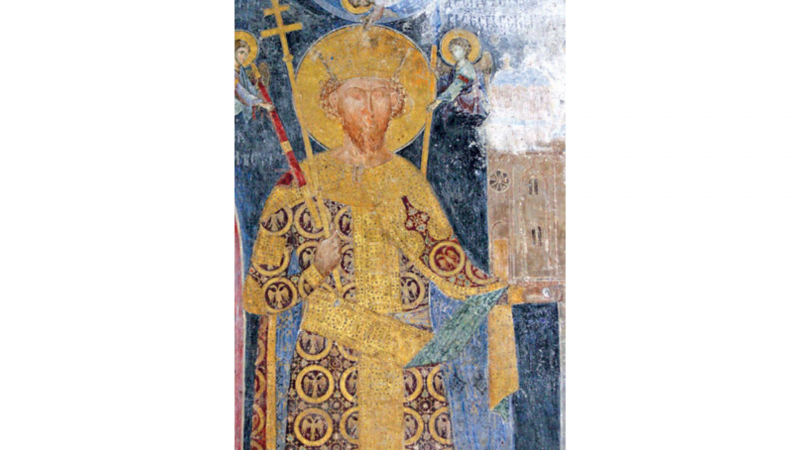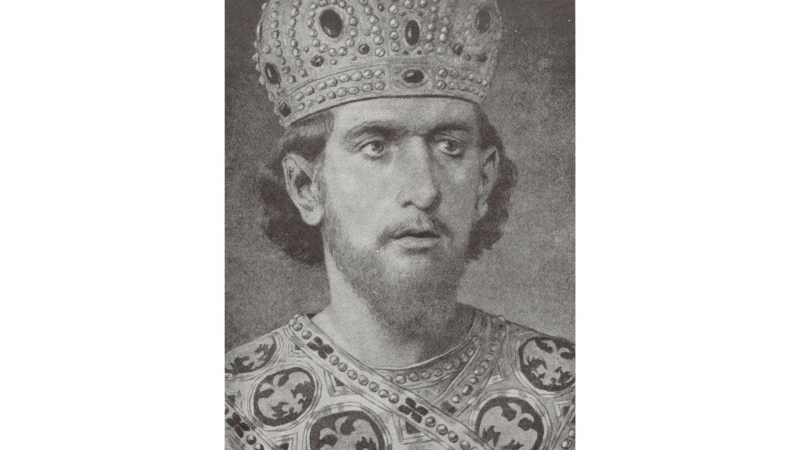Despot Stefan Lazarević
Between 1389 and 1402, Despot Stefan Lazarević (1377 - 19 July 1427), also known as Stefan the Tall, was the prince and despot of Serbia (1402–1427). He was recognized as one of the finest knights and military leaders of his day, and was the son of Prince Lazar Hrebeljanovi. He took over as the monarch of Moravian Serbia after the death of his father at Kosovo (1389) and reigned alongside his mother Milica (a Nemanji) until he reached adulthood in 1393. As an Ottoman vassal, Stefan commanded soldiers in a number of conflicts before declaring his independence in 1402, when he was given the title of tyrant by the Byzantines.
On the home front, he overcame the Serbian nobility's resistance and made use of the peaceful times to fortify Serbia's political, economic, cultural, and military institutions. He published the Code of Mines in 1412, which included a special section on managing Novo Brdo, the biggest mine in the Balkans at the time. This code accelerated Serbia's mining industry development, which had been the Serbian Despotate's primary source of revenue. Serbia was one of Europe's top silver producers at the time of his death.
He carried on the Morava school's development in the realm of architecture. Sometime the early beginnings of the Serbian Renaissance are linked to his rule and literary output. He gave Serbia access to guns, contemporary combat techniques, and knightly contests. He was a big supporter of the arts and culture, giving scholars and refugees from Ottoman-captured neighboring nations sanctuary and assistance. He was also a writer in his own right; his most notable piece, A Homage to Love, has Renaissance-style lines. He established the Resava School during his rule.












